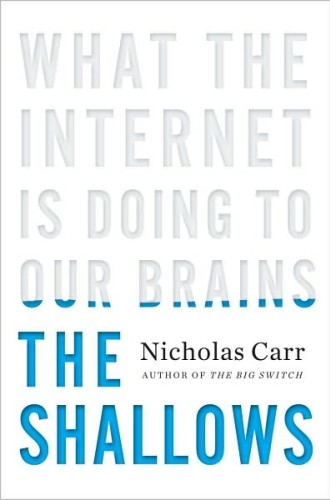How our minds have changed
Computers are changing the way we think. "Calm, focused, undistracted, the linear mind is being pushed aside by a new kind of mind that wants and needs to take in and dole out information in short, disjointed, often overlapping bursts—the faster, the better." This is probably not a good thing.
So says Nicholas Carr, the author of two previous books on the perils of information technology (Does IT Matter? Information Technology and the Corrosion of Competitive Advantage and The Big Switch: Rewiring the World, from Edison to Google). This third book is as pessimistic as the others, but it hits more of us where we live—glued to our computer screens.
If Carr's description of the easily distracted computer brain applies to you, you may want to skip this roughly 90,000-word book and go directly to his 4,175-word Atlantic article, "Is Google Making Us Stupid?" (July/August 2008), which has much the same premise. You won't need to read the whole thing: you can take the typical web user's approach instead. "Start by glancing all the way across the first two or three lines of text. Then [let your] eyes drop down a bit, and . . . scan about halfway across a few more lines. Finally, . . . let [your] eyes cursorily drift a little farther down the left-hand side of the page." Bored? Just click on some of the article's 22 hyperlinks.





